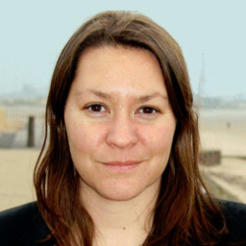The Charity Commission has adopted a ‘do as I say not as I do’ policy on charity campaigning, the shadow minister for civil society, Anna Turley, told the House of Commons yesterday.
In a Cabinet Office question session, Turley questioned cabinet office minister Matt Hancock over an essay written by Charity Commission board member, Gwythian Prins, urging the UK to leave the EU - despite the regulator publishing guidance warning that charities engaging in the EU debate would face tough “regulatory scrutiny”.
Turley said Prins' essay “comes after the Charity Commission tried to clamp down on charities engaging on the EU debate".
"Can [Matt Hancock MP] explain why the Charity Commission rule on campaigning appears to be ‘do as I say not do as I do?’," she asked.
“I welcomed his clarification that charity voices should and could be heard on issues that affect them. But it flies in the face of their own recent gagging clauses.”
Turley also questioned Hancock on whether “charities are allowed to speak out – but only if they agree with the minister?”, to which he simply replied, “no”.
Prins’ essay, Beyond the Ghosts – does EU membership erode Britain’s global influence?, was originally published by Historians for Britain, but is also now due to be published by the ‘sock puppet’ think tank, the Institute for Economic Affairs – an organisation currently being looked into by the regulator over its political and campaigning activities.
In the essay, Prins said: “In short, either the EU must change its very nature, or the British must leave the project.”
“The removal of Britain from the spider’s web of the acquis communautaire, which snares everything, is the prerequisite for the reconstruction of mature and healthy relations with our neighbours,” he said.
The Charity Commission faced a widespread backlash by sector leaders over its tough recent guidance for charities campaigning in the EU referendum. But it later slightly softened the wording of the guidance.
Last month a Commission spokesman said Prins was not involved in its dealings with the IEA.
“Where the board take any oversight of our casework it is through the Public Interest Litigation and High Risk Cases Committee. This committee reviews cases involving litigation or restitution, or cases that are high risk, and where there is a strong public interest. Professor Prins is not a member of the Committee nor has the Committee considered this case,” he said.









